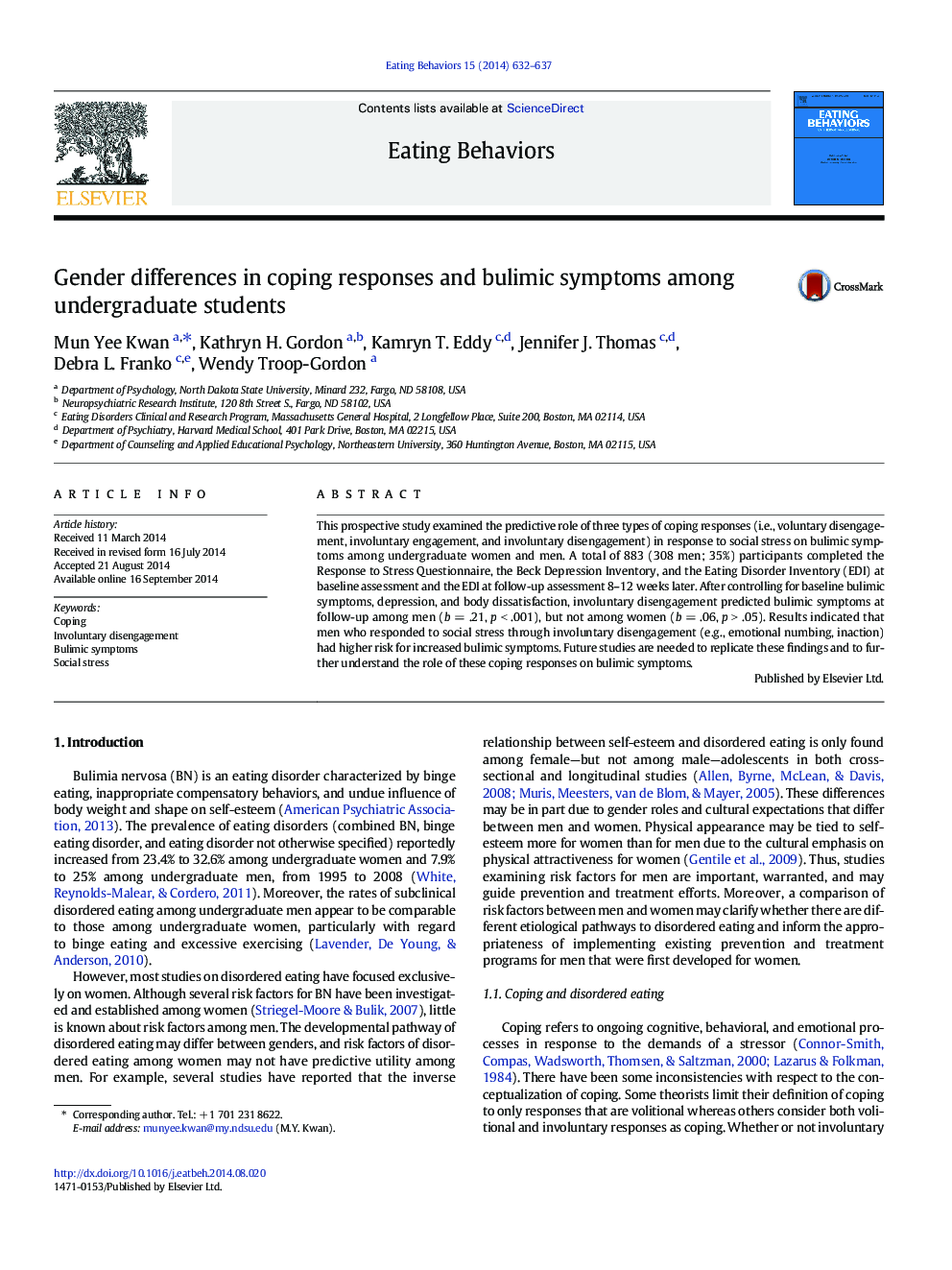| Article ID | Journal | Published Year | Pages | File Type |
|---|---|---|---|---|
| 10446873 | Eating Behaviors | 2014 | 6 Pages |
Abstract
This prospective study examined the predictive role of three types of coping responses (i.e., voluntary disengagement, involuntary engagement, and involuntary disengagement) in response to social stress on bulimic symptoms among undergraduate women and men. A total of 883 (308 men; 35%) participants completed the Response to Stress Questionnaire, the Beck Depression Inventory, and the Eating Disorder Inventory (EDI) at baseline assessment and the EDI at follow-up assessment 8-12 weeks later. After controlling for baseline bulimic symptoms, depression, and body dissatisfaction, involuntary disengagement predicted bulimic symptoms at follow-up among men (b = .21, p < .001), but not among women (b = .06, p > .05). Results indicated that men who responded to social stress through involuntary disengagement (e.g., emotional numbing, inaction) had higher risk for increased bulimic symptoms. Future studies are needed to replicate these findings and to further understand the role of these coping responses on bulimic symptoms.
Keywords
Related Topics
Life Sciences
Neuroscience
Behavioral Neuroscience
Authors
Mun Yee Kwan, Kathryn H. Gordon, Kamryn T. Eddy, Jennifer J. Thomas, Debra L. Franko, Wendy Troop-Gordon,
